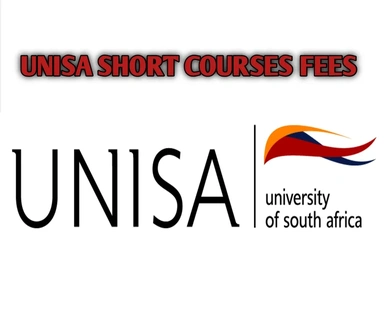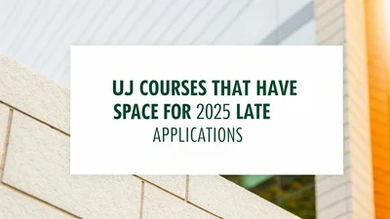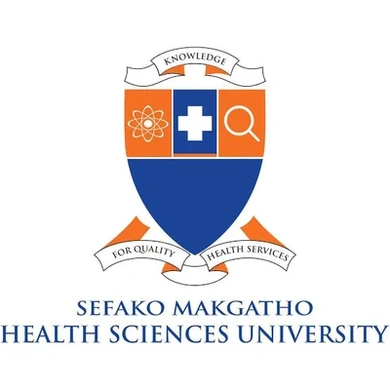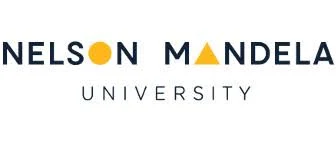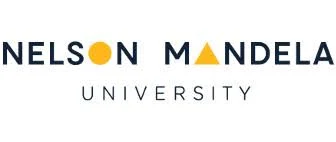Unisa short courses fees are affordable, making them ideal and accessible to prospective students who want to be equipped with skills and knowledge. These short courses allows professionals, students, and lifelong learners to engage in focused and specialized learning without financial burdens.
Unisa Short Courses Fees
You could be asking yourself, are Unisa short courses free? well, No. Unisa short courses are not free. Unisa short courses fees range from R2000 to R20000 depending on the type of the course and the duration. Students can pay fees in affordable monthly instalments. Below is the list of Unisa short courses fees per faculty.
Take note that the fees stated here are subject to change as Unisa fees are revised annually. For the most up-to-date and accurate course fees, click HERE. These fees do not cover the library access card and matriculation exemption.
Unisa Short Courses in accounting sciences Fees
| Unisa Short Courses | Total course fee |
| Course in Fundamental Accounting | R7 200 |
| Course in Taxation | R9 200 |
Unisa Short Courses in Agriculture and Environmental Sciences Fees
| Unisa Short Courses | Total course fee |
| Course in The Application of Climate-Smart Agriculture as a Sustainable Agricultural Practice | R9 000 |
| Short Course in Barista Skills | R5 431 |
| Short Course in Environmental Law & Environmental Management Legal Enforcement | R 12 241 |
| Short Course in Environmental Law and Liabilities for the Regulated Community | R8 574 |
| Short Course in the Introduction to Agribusiness Management | R2 889 |
| Workshop in Nutrition and Food Safety | R2 080 |
Unisa Short Courses in Economic and Management Sciences Fees
| Unisa Short Courses | Total Course Fee |
| Course in Ethics for Industrial and Organisational Psychology Practice | R8 000 |
| Course in Fundamentals of Banking and Risk Management | R3 000 |
| Course in Personal Financial Management | R2 160 |
| Short Course in SMME Management | R2 000 |
| Course in Share and Forex Trading | R6 480 |
| Course in the Introduction to Supply Chain Management | R3 000 |
| Programme in Accelerated Public Management Development | R7 830 |
| Programme in Basic, Intermediate and Advanced Project Management (ODL) | R13 178 |
| Programme in Public Administration and Management | R11 208 |
| Short Course in Employee Wellness | R7 489 |
| Short Course in Basic Financial Life Skills | R1 990 |
| Short Course in Basic Business Finance | R1 750 |
| Programme in Sales and Marketing | R6 400 |
| Programme in Credit Management | R7 000 |
| Programme in Disaster Management | R15 120 |
| Programme in International Freight Management and Administration for Importers and Exporters | R7 488 |
| Programme in Local Government Management (ODL) | R11 620 |
| Programme in Marketing Management | R6 480 |
Unisa Short Courses in Teaching Fees
| Unisa Short Courses | Total course fee |
| Advanced Course in the Facilitation of Learning for Tutors in Higher Education | R3 400 |
| Short Course in Student Support And Academic Development | R5 800 |
| Short Course in Teaching Accounting in Further Education and Training (FET) Phase | R4 600 |
Unisa Short Courses in Human Sciences Fees
| Unisa Short Courses | Total course fee |
| Course in Foundation Music Theory | R3 294 |
| Course in Teaching English as a Foreign Language to Adults | R8 738 |
| Programme in Cultural Policy and Management | R5 388 |
| Developing a Project Plan for an Advocacy Campaign on HIV and AIDS | R2 311 |
| Short Course in Biblical Hebrew Beginners | R1 248 |
| Short Course in Mainstreaming HIV and AIDS into Academic Development, | R2 700 |
| Research and Community Engagement | R4 992 |
| Short Course in Practical Guidelines in Building Stakeholder Relations | R8 736 |
| Short Course in the Introduction to Creative Writing | R3 744 |
| Short Course in the Psychology of Mentorship | R7 223 |
| Short course in the Orientation and Background to HIV Aids Care and Counselling | R3 582 |
| Emotional Intelligence Workshop: Self in Relation to Others | R6 000 |
| Workshop in Advanced Archives and Records Management | R14 792 |
| Workshop in Basic Archives and Records Management | R10 474 |
| Workshop in Intermediate Archives and Records Management | R12 134 |
Unisa Short Courses in Law Fees
| Unisa Short Courses | Total Course Fee |
| Advanced Corporate Law and Securities Law | R9 985 |
| Advanced Programme in Children's rights | R19 063 |
| Advanced Short Course in Africa and marine law | R4 320 |
| Advanced Short Course in Intellectual Property Management and Innovation | R8 736 |
| Course In Agricultural and Food Law of South Africa | R15 800 |
| Course in the Introduction to Corporate Governance | R5 928 |
| Programme in fundamentals aspects of children's rights | R8 665 |
| Short Course in Public Competition Law | R9 000 |
| Short Course in Refugee Law and Humanitarian Support | R2 496
|
Unisa Short Courses in Science, Engineering and Technology Fees
| Unisa Short Courses | Total Course Fee |
| Course in C++ Programming | R5 721 |
| Course in Computer Networks | R5 488 |
| Course in the Introduction to Java Programming | R5 721 |
| Programme in Industrial Engineering | R15 000 |
| Short Course in Advanced Information Security | R5 721 |
| Short Course in Applied Information Security | R5 490 |
| Short Course in Applied Project Management in an Information Technology Environment | R5 721 |
| Short Course in Database Design | R5 490 |
| Short Course in Database Implementation | R5 490 |
| Short Course in Designing and Implementing Telecommunication Networks | R4 565 |
| Short Course in Developing Web Applications with PHP | R5 259 |
| Short Course in I-SET Robotics Problem-solving, Data and Debugging | R4 450 |
| Short Course in Introduction to Information Security | R5 259 |
| Short Course in Introduction to Internet and Web Design | R5 721 |
| Short Course in Introduction to Visual Basic.Net Programming | R5 721 |
| Short Course in Introduction to Visual C#.Net | R5 490 |
| Short Course in Strategic Information Systems Planning in Practice | R5 490 |
Unisa Short Courses in Administration Fees
| Unisa Short Courses | Total Course Fee |
| Advanced Course in Diplomacy Studies | R12 000 |
| Advanced Course in Good Governance in Africa | R12 000 |
| Advanced Course in Humanitarian and Development Leadership | R6 000 |
| Advanced Course in Intelligence Management | R12 000 |
| Advanced Course in Security Management on the African Continent within a Global Context | R12 000 |
| Advanced Course in Thought Leadership for Africa's Renewal | R6 000 |
| Advanced Programme in Dynamics of Peace and Conflict in Africa | R8 000 |
| Advanced Programme in Policy Making and Analysis for Africa's Development | R20 000 |
I will now address the frequently asked questions regarding the costs of UNISA short courses such as funding, registration fee and how to pay fees for Unisa short courses.
Does Nsfas fund Unisa short learning Programmes?
Unisa short courses/short learning programmes are not funded by NSFAS (National Student Financial Aid Scheme). Short courses offered by UNISA are self-funded. Tuition fees or other associated costs are the responsibility of the individual enrolled for the course. These short courses are often more affordable and flexible compared to full-degree programs.
Is there a registration fee for Unisa short courses?
Yes there is a registration fee for Unisa short courses. To activate your registration, it is necessary to make a payment of at least the minimum amount specified in your Temporarily Registered status letter, also known as the TP letter. In case you cannot afford to pay the full minimum amount, a 50% partial payment of the minimum amount is required.
If the total fee for your selected Short Learning Programme is R4500, and you don't have the complete amount available, you can still proceed with registration by making a payment of R1,500, which is half of the minimum required amount of R3000. However, to do this, you must sign the Acknowledgement of Debt (AOD) form, which will allow you to arrange a payment plan for the remaining R3000 debt.
How to pay for short courses at Unisa?
Before you can pay fees for the chosen short course, you first need to register the modules associated with that course. After registering, you will receive at temporarily registered status letter which has the total costs due to you and the minimum fee to pay, to be a fully registered student at Unisa.
Unisa offers various payment methods to cater to different preferences. You can pay the fees via your local bank’s electronic fund transfer (EFT), credit/debit card, or cash deposit. Remember to include your student number in all payments you make to UNISA.
UNISA Short courses fees payment options
1. Bank Deposit
You can make cash and direct bank deposits at any First National Bank (FNB) and ABSA Bank branches.
HOW TO DEPOSIT UNISA FEES AT THE BANK
Go to your nearest FNB or ABSA branch, fill in the deposit slip. Ensure that you fill out the deposit slip correctly to avoid issues. Follow the simple instructions below to pay the application fee:
Deposit to: Unisa Student Fees
Unisa Account Number: 62799625200
Deposit reference: first eight blocks are for the student number. However, if the student number consists of only seven digits, then a “0” must be inserted as the initial digit of the student number. Leave one block blank, then fill in the following code, 3128374764, for short learning programmes fees. for example 73232323 3128374764.
Should any of the data on the bank deposit slip be incomplete or inaccurate, the transaction will not be approved by the bank or may delay the allocation or transfer of funds to your account. The University of South Africa cannot be held liable for delays incurred. Within two to ten business days, funds will be deposited into the account.
2. Electronic Funds Transfer (ETF)
Electronic Funds Transfer is another option available to pay your fees at Unisa. For those who prefer EFT, you will need to initiate a transfer from your bank account to UNISA's designated account. Make sure to accurately enter UNISA's banking details, including the account number, branch code, and reference number. This reference number is crucial to link your payment to your registration, so double-check that it is correct.
HOW TO PAY UNISA APPLICATION FEE USING EFT
South African students using FNB should follow these steps to complete the transaction:
Bank name: First National Bank (FNB)
Account name: Unisa Students Deposits
Unisa Account Number: Choose Unisa on the list of pre-approved public beneficiaries
Reference: Student number, a space, 3128374764 , for example 73232323 3128374764
Please use the following details for your EFT if you are a South African student who is not banking with FNB:
Bank name: First National Bank (FNB)
Account name: Unisa Student Fees
Unisa Account Number: 62799625200
Branch code: 250645
Reference: Student number, space, 5370810030, for example 73232323 3128374764
Electronic Funds Transfer simple Instructions: Go to any bank near you and deposit the Unisa short courses fees at the ATM OR go to your banking app and make a transfer from your account to the Unisa bank account. You will enter the Unisa account number: 62799625200 and your reference. Ensure that the reference is correct. For example, 73232323 3128374764
How long does it take for Unisa short courses fees to reflect?
After making the payment, allow a reasonable amount of time for the payment to reflect in UNISA's system. The payment will reflect within 2 to 10 working days depending on the payment method and the bank you used. Once your payment has been received, your registration will be activated. If your payment does not reflect after 10 working days, you should contact UNISA and provide them with your proof of payment.
Investing in a UNISA short course can yield long-term benefits for your career and personal growth. The acquired knowledge, skills, and certification can open doors to new opportunities, advancements in your current job, or a shift to a different career path. With many employers valuing continuous learning and professional development, UNISA short courses can enhance your resume and set you apart in a competitive job market.
UNISA Related Articles
Unisa courses that require 20 aps or less
Unisa Short Courses in Teaching Requirements
Unisa courses that require 21 to 25 points (aps)
Unisa courses that do not require maths or maths lit
How to pay UNISA application fee using the Capitec app
Unisa Higher Certificate Courses that don't require Maths or Maths Lit


